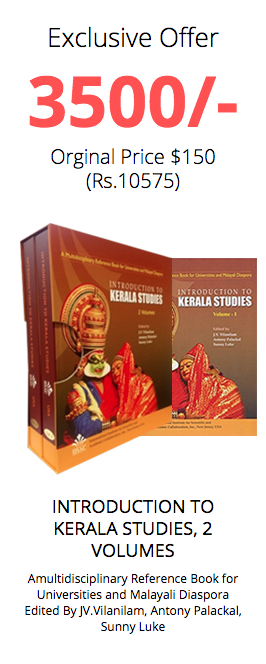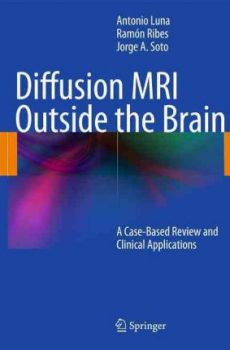
Diffusion MRI Outside the Brain
11,120.00₹ 8,700.00₹
Recent advances in MR technology permit the application of diffusion MRI outside of the brain. In this book, the authors present cases drawn from daily clinical practice to illustrate the role of diffusion sequences, along with other morphological and functional MRI information, in the work-up of a variety of frequently encountered oncological and non-oncological diseases. Breast, musculoskeletal, whole-body, and other applications are covered in detail, with careful explanation of the pros and cons of diffusion MRI in each circumstance. Quantification and post-processing are discussed, and advice is provided on how to acquire state of the art images, and avoid artifacts, when using 1.5- and 3-T magnets. Applications likely to emerge in the near future, such as for screening, are also reviewed. The practical approach adopted by the authors, combined with the wealth of high-quality illustrations, ensure that this book will be of great value to practitioners.

Oncologic and Cardiologic PET/CT-Diagnosis: An Interdisciplinary Atlas and Manual
22,320.00₹ 14,000.00₹
Based on the experience gained by PET/CT experts with more than 10,000 patients, this manual impressively demonstrates the advantages of combined PET/CT. It also refers to publications from Europe, the USA and Asia as well as numerous studies.
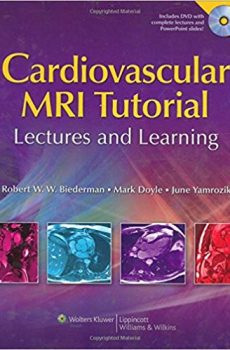
Cardiovascular MRI Tutorial: Lectures and Learning
16,320.00₹ 7,990.00₹
Products purchased from 3rd Party sellers are not guaranteed by the Publisher for quality, authenticity, or access to any online entitlements included with the product.
This text/DVD package is ideally suited for training courses for cardiologists and radiologists seeking certification to perform and interpret cardiovascular MRI (CMR) examinations. The authors present 37 lectures that systematically explain all key aspects of CMR. Coverage begins with an overview of principles, equipment, and imaging methods and proceeds to imaging protocols and clinical applications. An Advanced Training section includes details of imaging techniques, vascular imaging techniques, specialized cardiac imaging, and artifacts.
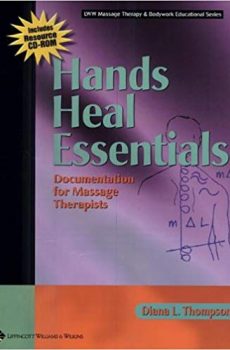
Hands Heal Essentials: Documentation for Massage Therapists
4,130.00₹ 3,090.00₹
This abbreviated version of Hands Heal, Third Edition is a practical guide to documentation in wellness massage. It is designed for massage therapists who do not provide therapy that would require physician referrals or insurance billing.
Hands Heal Essentials offers wellness charting guidelines for energy work, on-site massage, and relaxation and spa therapies, along with sample completed forms and blank forms. Crucial information on HIPAA regulations is included.
A front-of-book CD-ROM includes the blank forms for use in practice, a quick-reference abbreviation list, and a quiz tool to review key concepts. Faculty ancillaries are available upon adoption.
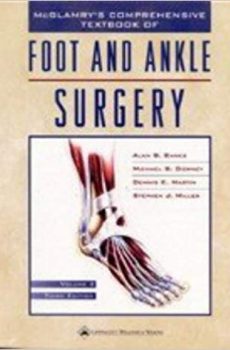
McGlamry’s Comprehensive Textbook of Foot and Ankle Surgery
30,100.00₹ 16,900.00₹
“McGlamry’s Comprehensive Textbook of Foot and Ankle Surgery, Third Edition” is a standard core text in podiatric education, for those who specialize in managing the many problems of the foot and ankle. This Third Edition includes: biomaterials; expansion of the external/internal fixation devices (pins, staples, cannulated screws); principles of fixation; and, expansion of neurological disorders material. There will also be a new chapter on selected rearfoot arthrodeses.
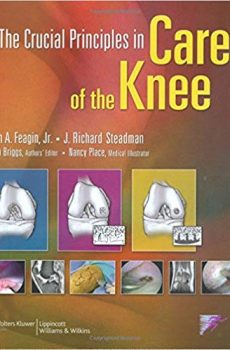
The Crucial Principles in Care of the Knee
15,900.00₹ 5,290.00₹
Written by internationally eminent authorities in sports medicine and knee surgery, this book thoroughly describes and illustrates the key principles in the diagnosis, surgical treatment, and rehabilitation of knee disorders. The information on surgical procedures, outcomes, and complications is evidence-based and documented from a database of over 15,000 cases.
Coverage includes detailed descriptions and illustrations of three new surgical procedures—microfracture for chondral injuries, stimulation of the healing response in ligamentous injuries, and arthroscopic treatment of the degenerative knee. Specific postoperative rehabilitation protocols are included for many surgical procedures. Other topics covered include injury prevention, imaging, functional evaluation, and biomechanics. More than 300 outstanding illustrations complement the text.
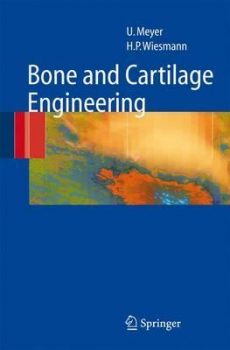
Bone and Cartilage Engineering
13,900.00₹ 5,490.00₹
Bone and Cartilage Engineering provides a complete overview of recent knowledge in bone and cartilage tissue engineering. It follows a logical approach to the various aspects of extracorporal bone and cartilage tissue engineering. The cooperation between a basic scientist and a clinician made it possible to structure the book’s content and style according to the interdisciplinary character of the field. The comprehensive nature of the book, including detailed descriptions of laboratory procedures, preclinical approaches, clinical applications, and regulatory issues, will make it an invaluable basis for everyone working in this field. This book will serve as a fundamental tool for basic researchers to establish or refine tissue engineering techniques as well as for clinicians to understand and use this modern therapeutic option.

Radiology Review Manual
6,900.00₹ 990.00₹
This succinct yet complete presentation of radiologic diseases includes all relevant findings and differential diagnoses for every body region. Similar to previous versions, the fourth edition is organized by body system and is presented in an outline format with line drawings and mnemonics for remembering diagnoses.
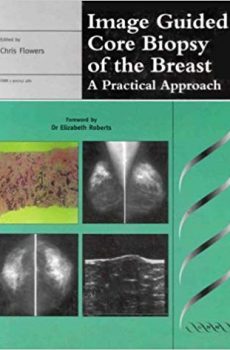
Image Guided Core Biopsy of the Breast: A Practical Approach
4,500.00₹ 1,990.00₹
Image Guided Core Biopsy of the Breast is the first book to truly reflect this multidisciplinary approach and to describe, in a practical and clinically relevant way, the principles and practices of core biopsy techniques. It shows this type of biopsy can be used to improve preoperative diagnostic rates in a cost-effective manner and, whilst discussing all currently used protocols in detail, it focuses on the simpler, “low-tech” lateral stereotactic needle guide.

Translation and Opposition
3,490.00₹ 1,300.00₹
Translation and Opposition is an edited volume that brings together cultural and sociological perspectives by examining translation through the prism of linguistic/cultural hybridity and inter/intra-social agency. In a collection of diverse case studies, ranging from the translation of political texts to interpreting in concentration camps, the book explores issues of power struggle, ideology, censorship and identity construction. The contributors to the volume show how translators, interpreters and subtitlers as mediators put their specific professional and ethical competences to the test by treading the dividing lines between constellations of ‘in-groups’ and cultural or political ‘others’.

Disenchantment with Market Economics
8,400.00₹ 2,500.00₹
The life-worlds and personal experiences of workers and employees in three enterprises in East Berlin at the moment of political and economic upheaval stand at the centre of the book. It sets out in 1989 at the moment of the fall of the Berlin Wall witnessing the confrontations with the market economy and examining the reinterpretations of the socialist past as the political and economic changes take place.
Disenchantment with Market Economics captures a unique moment in history and unveils myths and promises of liberal market economy from the perspective of those who lived through the break down of the planned economy at their workplaces in East Berlin. While Western managers regarded the expansion of their businesses towards Eastern Europe as a civilising mission, the East German employees reacted with complex strategies of individual adaptation and resistance.
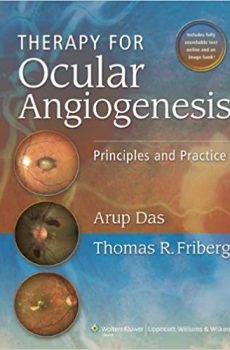
Therapy for Ocular Angiogenesis: Principles and Practice
14,350.00₹ 4,790.00₹
Ocular angiogenesis, or the abnormal growth of blood vessels in the eye, is the cause of major neovascular eye diseases. In addition, retinal and choroidal neovascularization are the major causes of vision loss in this country. With the new era of anti-angiogenic therapies already in practice, ophthalmologists have started treating many ocular diseases including macular degeneration, diabetic retinopathy, and retinal vascular occlusion using anti-angiogenic drugs.
Therapy for Ocular Angiogenesis: Principles and Practice covers the basic pathophysiology of ocular angiogenesis and strategies for inhibition. The authors discuss the “Principles” of anti-angiogenic therapy, pre-clinical studies, future drugs on the horizon, drug delivery, and the “Practice” of the therapy in many ocular diseases. Vision researchers in both academia and industry, as well as clinician scientists, have contributed chapters on different aspects of the angiogenic process, and clinical strategies to fight it. The book also includes chapters that deal with diabetic macular edema, and various therapeutic options for this condition.
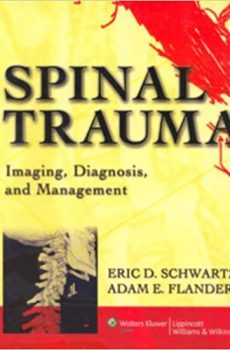
Spinal Trauma: Imaging, Diagnosis, and Management
12,880.00₹ 4,990.00₹
Written by recognized experts, this volume is a comprehensive reference on the use of advanced imaging techniques in the diagnosis and management of spinal trauma. In one cohesive source, the book brings together information on state-of-the-art clinical imaging—including multidetector CT and high-field MRI techniques—and the pathophysiology, neurologic evaluation, medical management, surgical treatment, and postoperative assessment of spine trauma and spinal cord injury. Also included are cutting-edge reviews of experimental imaging techniques and their applications and experimental therapies such as neurotransplantation. More than 700 illustrations—including 180 in full color—complement the text.
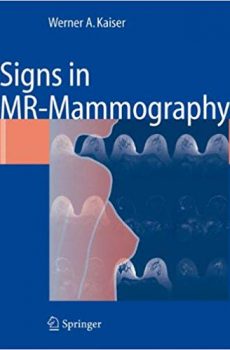
Signs in MR-Mammography
13,200.00₹ 4,990.00₹
Breast cancer is the leading cause of cancer-related deaths in women, and its prevalence has been steadily rising in recent decades. This book describes morphologic and kinetic signs that are important in the analysis of breast MR images before and after contrast administration and in various pulse sequences. It will help broaden the clinical application of MRM so that as many physicians as possible can make more accurate diagnoses.
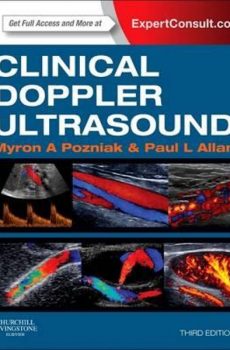
Clinical Doppler Ultrasound
4,324.00₹ 3,890.00₹
Clinical Doppler Ultrasound offers an accessible, comprehensive introduction and overview of the major applications of Doppler ultrasound and their role in patient management. The new edition of this medical reference book discusses everything you need to know to take full advantage of this powerful modality, from anatomy, scanning, and technique, to normal and abnormal findings and their interpretation. It presents just the right amount of Doppler ultrasonography information in a compact, readable format!
“As with previous editions of this text I feel it would make an excellent addition to the library of any department where Doppler ultrasound examinations are performed”. Reviewed by: Dave Flinton for the journal Radiography, Nov 2014
- Make the most informed Doppler imaging decisions possible by gaining a thorough understanding of the advantages and disadvantages of using Doppler ultrasound, as well as the basic principles behind its techniques and technologies.
- Acquire optimal images and avoid errors with the help of detailed protocols and high-quality, full-color illustrations throughout.
- Understand and apply the latest Doppler imaging techniques with a new chapter on interventional and intraoperative applications of Doppler ultrasound and a new chapter on dialysis grafts, plus coverage of the most recent information on the role of contrast agents and how best to administer them.
- View real-time videos of Doppler imaging, and search across the complete text online at Expert Consult.
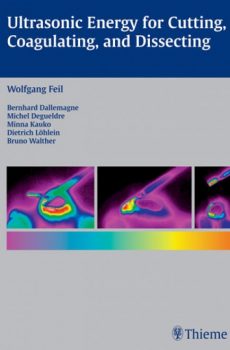
Ultrasonic Energy for Cutting, Coagulating and Dissecting
16,700.00₹ 9,999.00₹
Ultrasonic energy can be applied to surgical instruments for cutting, dissecting, and coagulating vessels and/or tissue. This book presents the use of ultrasound energy as it is used in UltraCision products, for use in surgery on many parts of the body.
Principles of UltraCision technology: The instruments are attached to a hand piece, which is connected to a generator. The ultrasonic system is situated inside the hand piece and transforms the electric energy into mechanical movement, producing in this way longitudinal vibrations of the blades at approx. 55 kHz per second. The movement of the blades causes collagen molecules to vibrate inside the tissues, thus forming a coagulum upon their denaturation. This method is especially useful in parenchymatous organs, where dissection can be performed cleanly and with little or no bleeding.

Ogata-Mura: Sowing Dissent and Reclaiming Identity in a Japanese Farming Village
8,400.00₹ 2,090.00₹
Following the Second World War, a massive land reclamation project to boost Japan’s rice production capacity led to the transformation of the shallow lagoon of Hachirogata in Akita Prefecture into a seventeen-thousand-hectare expanse of farmland. In 1964, the village of Ogata-mura was founded on the empoldered land inside the lagoon and nearly six hundred pioneers from across the country were brought to settle there. The village was to be a model of a new breed of highly mechanized, efficient rice agriculture; however, the village’s purpose was jeopardized when the demand for rice fell, and the goal of creating an egalitarian farming community was threatened as individual entrepreneurialism took root and as the settlers became divided into political factions that to this day continue to struggle for control of the village. Based on seventeen years of research, this book explores the process of Ogatamura’s development from the planning stages to the present. An intensive ethnographic study of the relationship between land reclamation, agriculture, and politics in regional Japan, it traces the internal social effects of the village’s economic transformations while addressing the implications of national policy at the municipal and regional levels.
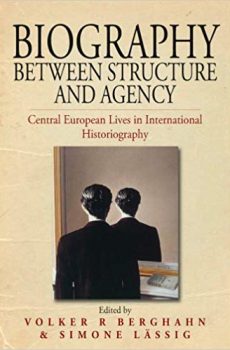
Biography Between Structure and Agency
8,400.00₹ 1,990.00₹
While bookstore shelves around the world have never ceased to display best-selling “life-and-letters” biographies in prominent positions, the genre became less popular among academic historians during the Cold War decades. Their main concern then was with political and socioeconomic structures, institutions, and organizations, or―more recently―with the daily lives of ordinary people and small communities. The contributors to this volume―all well known senior historians―offer self-critical reflections on problems they encountered when writing biographies themselves. Some of them also deal with topics specific to Central Europe, such as the challenges of writing about the lives of both victims and perpetrators. Although the volume concentrates on European historiography, its strong methodological and conceptual focus will be of great interest to non-European historians wrestling with the old “structure-versus-agency” question in their own work

Americanization and Anti-americanism: The German Encounter with American Culture after 1945
8,400.00₹ 2,990.00₹
The ongoing discussions about globalization, American hegemony and September 11 and its aftermath have moved the debate about the export of American culture and cultural anti-Americanism to center stage of world politics. At such a time, it is crucial to understand the process of culture transfer and its effects on local societies and their attitudes toward the United States.
This volume presents Germany as a case study of the impact of American culture throughout a period characterized by a totalitarian system, two unusually destructive wars, massive ethnic cleansing, and economic disaster. Drawing on examples from history, culture studies, film, radio, and the arts, the authors explore the political and cultural parameters of Americanization and anti-Americanism, as reflected in the reception and rejection of American popular culture and, more generally, in European-American relations in the “American Century.”

Antietam, South Mountain, and Harpers Ferry
1,490.00₹ 1,190.00₹
In September 1862 the Confederate Army of Northern Virginia and the Union Army of the Potomac conducted one of the truly great campaigns of the Civil War. At South Mountain, Harpers Ferry, and Antietam, North and South clashed in engagements whose magnitude and importance would earn this campaign a distinguished place in American military history. The siege of Harpers Ferry produced the largest surrender of U.S. troops in the nationâs history until World War II, while the day-long battle at Antietam on September 17 still holds the distinction of being the single bloodiest day of combat in American history.
This invaluable book provides a clear, convenient, stop-by-stop guide to the sites in Maryland and West Virginia associated with the Antietam campaign, including excursions to Harpers Ferry and South Mountain. Thorough descriptions and analyses, augmented with vignettes and numerous maps, convey the mechanics as well as the human experience of the campaign, making this book the perfect companion for both serious students of the Civil War and casual visitors to its battlefields.

